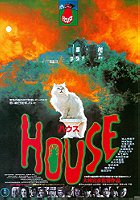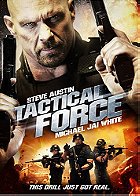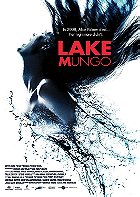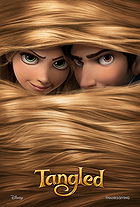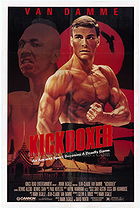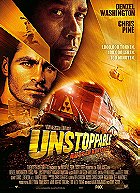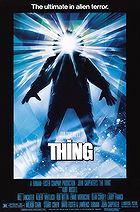Jacob Aaron Estes spent years working on a screenplay for his debut feature film, and the result is 2004's Mean Creek; a multifaceted, deceptively straightforward spin on the coming-of-age genre. Both harrowing and emotionally devastating, writer-director Estes made the most of the scant $500,000 budget he had at his disposal, using candid writing and an astonishing cast of young unknowns to elevate what could've easily been a cheap retread of similar productions. Mean Creek is unflinching in its ugly examination of morality and the human condition, with a story that spotlights a handful of innocent children marching towards adulthood who are forced to confront tragic events. Estes refused to take the easy way out here, resulting in a sincere motion picture free of Hollywood artifice, shrill faux melodrama, sentimentality and out-of-place humour.

When overweight school bully George (Peck) brutally beats up young classmate Sam (Culkin), a plan is conjured up to teach the arrogant tyrant a lesson. Feeling uncomfortable about physically hurting George, Sam and his older brother Rocky (Morgan) look to humiliate Sam's attacker with help from two of Rocky's friends: the meek Clyde (Kelley), and the gung-go Marty (Mechlowicz). Under the guise of it being Sam's birthday, the plan involves bringing George on an afternoon boating trip along a local river. As George is eager to make friends, he happily agrees to the invitation, unaware of the plans which await him. Sam's crush Millie (Schroeder) also tags along for the boating trip. Unfortunately, the prank goes awry, and everyone involved becomes faced with the horrible reality of their actions.
What really works here is the way that writer-director Estes allows time for us to get to know George. Everyone is eager to condemn him but, as it turns out, George is not inherently bad; he's a complex, mentally troubled boy merely yearning for social acceptance. Several of the characters come to recognise George's innate humanity, and as the day unfolds they start to sympathise with him and have second thoughts about their impending prank. A less skilful filmmaker would have painted the characters in broad strokes of black and white, with George as a straight-up villain and Sam as just a victim. Estes, on the other hand (despite being the target of a verbally abusive bully in his youth), removed these blind designations to take viewers on a morally ambiguous saga where the line between right and wrong has been severely blurred. And once tragedy strikes, there are no easy solutions or answers. Who is to blame for the tragedy? Is there anyone to blame? More pertinently, the characters are faced with an uncomfortable moral dilemma for which each ostensible solution has huge drawbacks, so what should be done? As Mean Creek has a lot on its mind, it would've been difficult for Estes to devise a satisfying resolution. Unfortunately, the ending falls somewhat short; it wants to be deviously ambiguous, but seems more like a copout.

Estes' directorial style is decidedly non-flashy and almost documentary-esque. Shot on location in the Oregonian wilderness, Mean Creek was not coated in a thick layer of Hollywood polish; rather, the film's look is somewhat raw, exemplifying the picture's indie origins. Despite Estes' filmmaking inexperience (he had only directed one short film prior to Mean Creek), the movie feels as if it was puppeteered by a veteran. Heck, some Hollywood directors have been working for decades, but are no match for Estes' superb mise-en-scène and gift for compelling drama. Pacing is another of the director's strong suits. While the third act admittedly starts to drag, the middle act (i.e. the whole boating trip) is completely gripping and full of tension, culminating with a game of "truth or dare" that's riveting in its unpredictability. Credit is also due to Sharone Meir for the handsome cinematography, while composer tomandandy should be commended for his evocative score that underscores the sense of tension and tragedy as a fun afternoon gives way to disaster and despair.
With no exceptions, the six leading actors are outstanding; easily one of the most talented young ensembles in years. As Sam, Rory Culkin (who, yes, does remind you of his big brother Macaulay) is amazing - the youthful performer was able to convey sadness and vulnerability, not to mention anxiety. Unexpectedly, Lizzie Maguire regular Carly Schroeder is perhaps the most nuanced cast-member (though this statement in no way belittles her excellent co-stars). Playing Sam's would-be girlfriend Millie, the cute Schroeder convincingly sells every aspect of her character, whose innocence gives way to a wider array of emotions. Mega props is also due to Nickelodeon favourite Josh Peck, who was given the difficult task of humanising the role of George. Peck was called upon to sell both humanity and brutality; a feat that he pulled off remarkably. Alongside them, Scott Mechlowicz is frightening and incredibly convincing as Marty, while Ryan Kelley and Trevor Morgan lend strong support playing Clyde and Rocky. It's a big ensemble, to be sure, but every actor shines, and each were given moments to make their roles three-dimensional.

Mean Creek was an official selection at both the Cannes and Sundance film festivals, and it's not hard to see why. Low-budget independent movies are often perceived as a source of intelligence, boldness and originality lacking in big dumb Hollywood blockbusters, and Mean Creek gives further credence to this belief. Even despite a few minor faults, this is essential viewing.
8.5/10
 Login
Login
 Home
Home 183 Lists
183 Lists 1670 Reviews
1670 Reviews Collections
Collections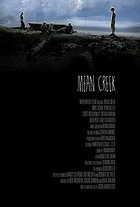
 0 comments,
0 comments, 